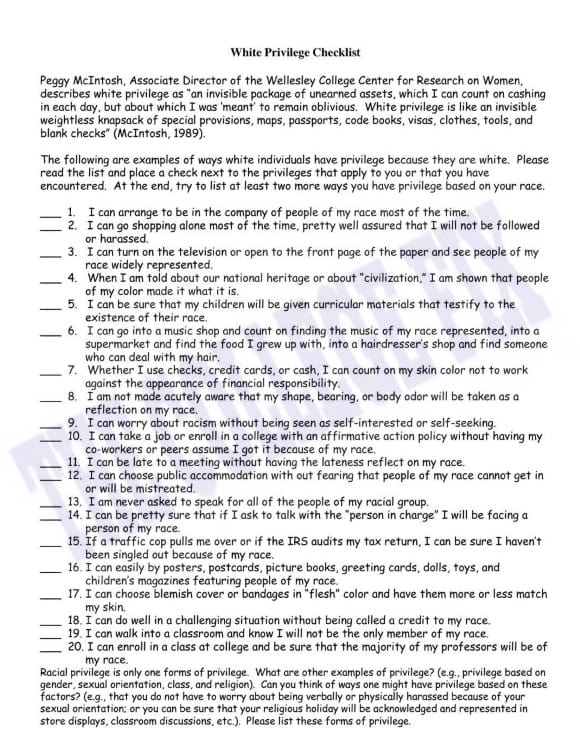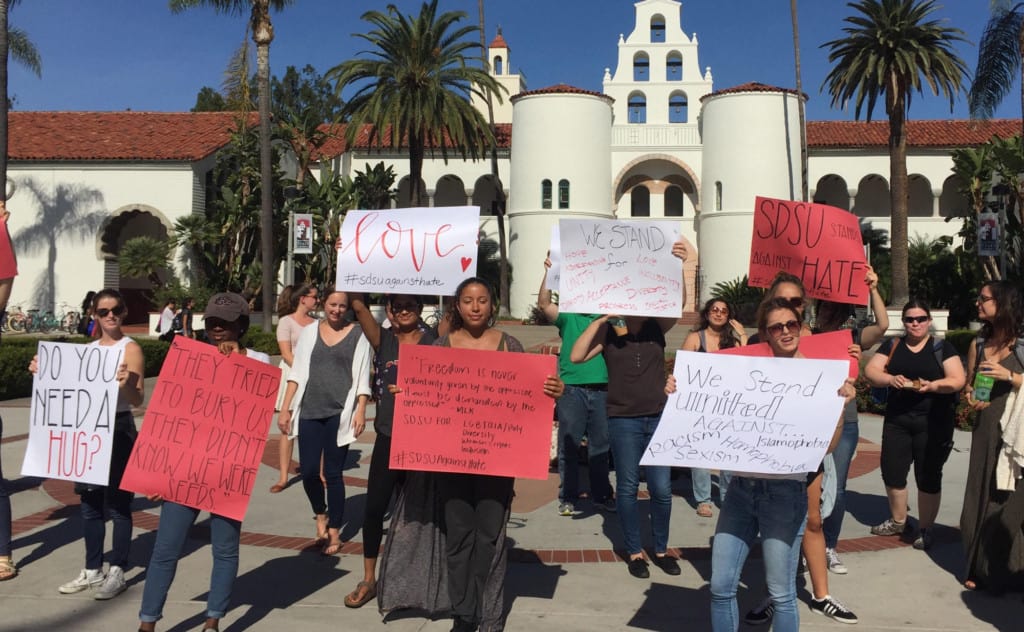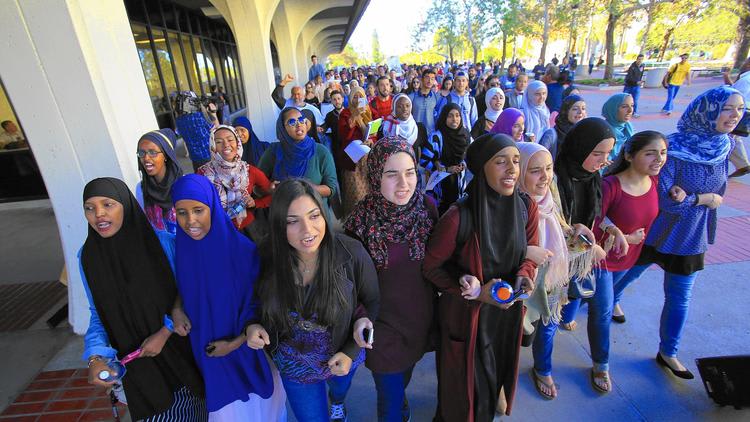You know that old saying ‘He who doesn’t know structuralism, to any postmodern ideology will he bow’, well, a San Diego State University professor might have bitten down on more than she could chew when she was preaching ‘white privilege’ to her students.
Sociology professor Dae Elliott is catching flak over a ‘White Privilege Checklist’, where students had to check what statements applied to them. This was supposed to be an extra credit quiz, with the hopes that the alumni could understand that “racial privilege is one form of privilege”, as The College Fix reports.

Statements on the quiz went from, “I can go shopping alone most of the time, pretty well assured that I will not be followed or harassed”, to “I can enroll in a class at college and be sure that the majority of my professors will be of my race” This, to no surprise didn’t sit well with the college Republicans.
“This is another attempt by the left, and Professor Elliot, to divide America. The left’s political goal is to ensure that minorities in America perpetuate that their primary problem is white racism. This only furthers the portrayal of minorities in America as victims and does nothing to help contribute to their advancement in society.”
SDSU College Republicans President Brandon Jones told The College Fix.

Ms. Elliott claims her intentions are less damming and dramatic than her Republican counterparts make them out to be.
“Only through processes that allow us to share inter-subjectively, weigh all of our perspectives according to amount of shareable empirical evidence can we approximate an objective understanding of our society. In a society that values fairness, our injustices that are institutionalized are often made invisible.”
Dae Elliott to The College FIX
The quiz also informed students about different types of privilege, like that of gender, sexual orientation, class, religion, to name a few, and asked them to think of other ways they might be privileged over others.
 For further extra credit, students had to answer a series of questions such as, “Were you surprised by your score, or did it confirm what you already knew?, Why is privilege normally invisible and what does it feel like to make it visible? Do you think this exercise is different for white students than for students of color? For black students than for Asian, Indian, Latino/students, or other students of color?”
For further extra credit, students had to answer a series of questions such as, “Were you surprised by your score, or did it confirm what you already knew?, Why is privilege normally invisible and what does it feel like to make it visible? Do you think this exercise is different for white students than for students of color? For black students than for Asian, Indian, Latino/students, or other students of color?”
The question on the public’s mind is and will always be on such polarizing issues if we will ever be able to reach a fair consensus for everyone. One can only hope.
